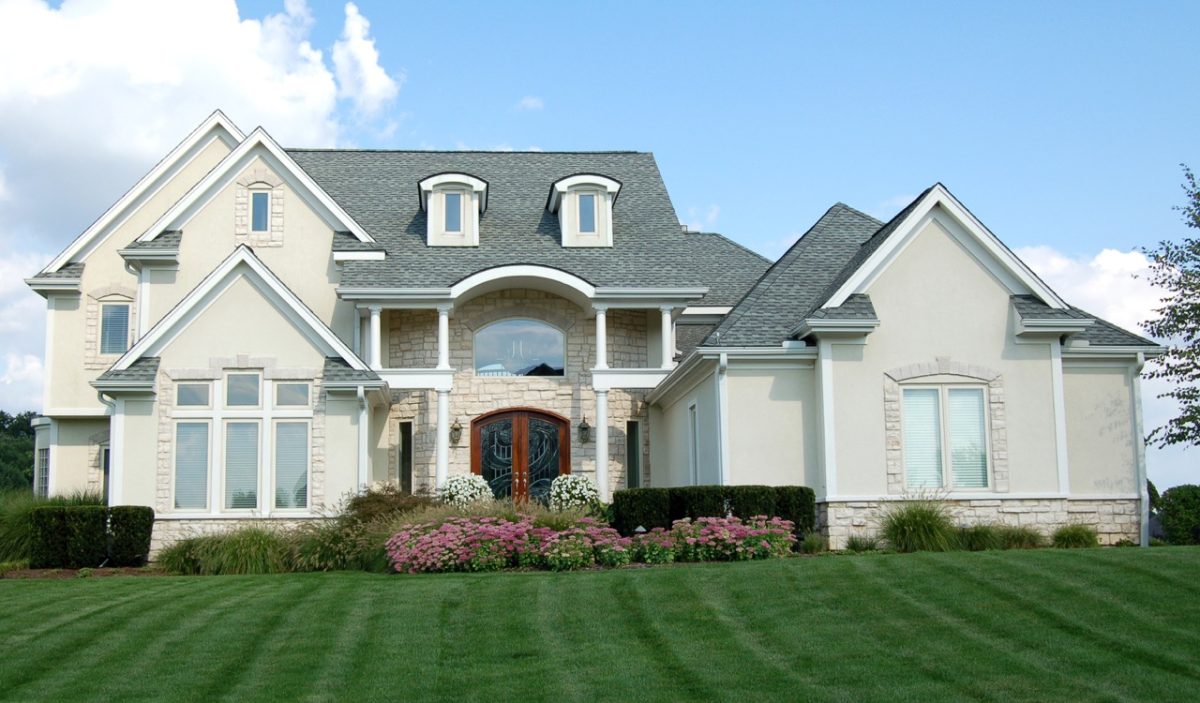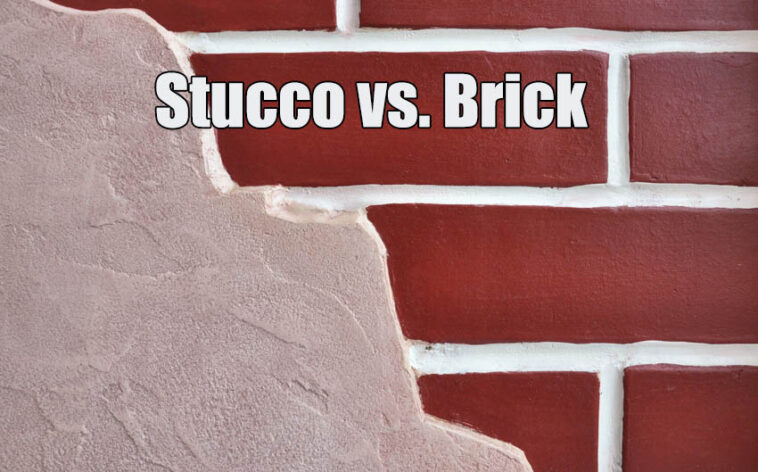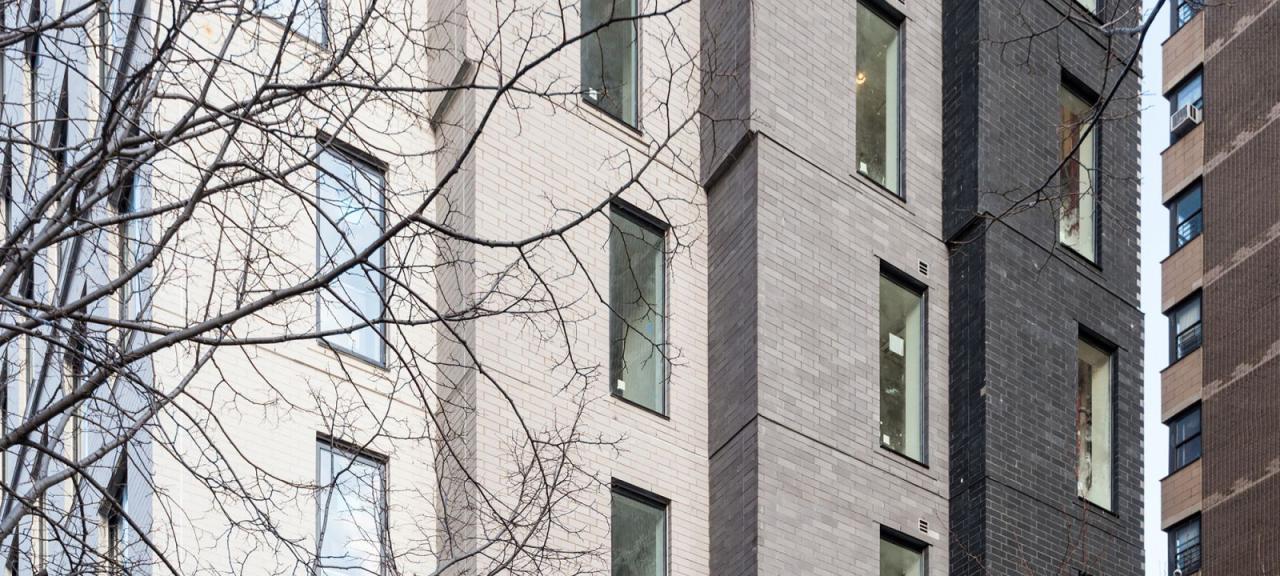Brick vs Stucco Exterior: Which Is Better?

Brick vs stucco exterior: which is better? sets the stage for a comprehensive comparison between these two popular building materials. Dive into a world of durability, aesthetics, and climate considerations as we explore the pros and cons of each option.
In the following paragraphs, we will delve deeper into the benefits of brick and stucco exteriors, shedding light on their respective advantages and drawbacks.
Benefits of Brick Exteriors

Brick exteriors offer a range of advantages that make them a popular choice for many homeowners. From durability to energy efficiency, brick has several benefits over stucco exteriors.
Durability of Brick Compared to Stucco
Brick is known for its exceptional durability, able to withstand harsh weather conditions, impact, and even fire. Unlike stucco, which can crack and chip over time, brick remains strong and sturdy for decades. This longevity makes brick a reliable choice for homeowners looking for a low-maintenance exterior option.
Maintenance Requirements for Brick Exteriors
One of the key benefits of brick exteriors is their minimal maintenance requirements. Unlike stucco, which may need frequent repainting and repairs, brick simply needs occasional cleaning to maintain its appearance. This can save homeowners time and money in the long run, making brick a cost-effective choice for those seeking a hassle-free exterior option.
Energy Efficiency of Brick Versus Stucco Exteriors
Brick exteriors offer excellent energy efficiency, helping to regulate indoor temperatures and reduce heating and cooling costs. The thermal mass of brick can help keep homes cool in the summer and warm in the winter, providing year-round comfort for residents.
In contrast, stucco exteriors may not offer the same level of insulation, making brick a more energy-efficient choice for environmentally conscious homeowners.
Benefits of Stucco Exteriors

Stucco exteriors offer a range of benefits that make them a popular choice for many homeowners. From design versatility to cost-effectiveness, stucco has several advantages worth considering for your next home project.
Versatility in Design Options
Stucco provides homeowners with a wide variety of design options to choose from. Whether you prefer a modern, sleek look or a more traditional aesthetic, stucco can be customized to suit your style. With different textures, colors, and finishes available, stucco allows for creativity and personalization in exterior design.
Installation Process of Stucco Exteriors
The installation process of stucco exteriors is relatively straightforward and efficient. Stucco can be applied to various surfaces, including concrete, masonry, and wood, making it a versatile choice for different types of homes. The process typically involves preparing the surface, applying multiple layers of stucco, and finishing with the desired texture or color.
Cost-Effectiveness Compared to Brick
One of the key advantages of stucco exteriors is their cost-effectiveness compared to brick. Stucco is generally more affordable than brick in terms of both materials and installation costs. Additionally, stucco requires less maintenance over time, saving homeowners money on repairs and upkeep.
This makes stucco a budget-friendly option for those looking to enhance the look of their home without breaking the bank.
Aesthetics and Curb Appeal

Brick and stucco exteriors each offer unique aesthetic qualities that can greatly enhance the curb appeal of a home. Let's explore how these materials contribute to the overall look and feel of a property.
Aesthetic Appeal of Brick Exteriors
Brick exteriors are known for their timeless appeal and versatility in various architectural styles. From traditional to modern, brick seamlessly integrates into different design aesthetics, adding a touch of sophistication and elegance. The rich texture and earthy tones of brick create a warm and inviting facade that stands out in any neighborhood.
Colors and Textures of Stucco Exteriors
Stucco exteriors come in a wide range of colors and textures, offering homeowners the opportunity to customize the look of their home. Whether you prefer a smooth finish in a neutral tone or a textured surface in a vibrant color, stucco can be tailored to suit your personal style.
The versatility of stucco allows for endless design possibilities, making it a popular choice for modern homes.
Complementing Landscaping and Curb Appeal
Both brick and stucco exteriors can complement landscaping features and enhance curb appeal in their own unique ways. Brick exteriors pair beautifully with lush greenery and garden elements, creating a classic and cohesive look. On the other hand, stucco exteriors provide a clean backdrop for landscaping elements to pop against, allowing for a more contemporary and minimalist curb appeal.
Whether you prefer a traditional or modern aesthetic, both brick and stucco can elevate the overall look of your home.
Climate Considerations
Brick and stucco exteriors both have unique characteristics that can affect their performance in different climates. Understanding how these materials respond to various weather conditions can help homeowners make informed decisions when choosing between the two options.
Insulation Properties
Brick is known for its thermal mass properties, which help regulate indoor temperatures by absorbing heat during the day and releasing it at night. This can be beneficial in colder climates as it can help reduce heating costs. On the other hand, stucco is not as effective in providing insulation and may require additional insulation materials to be added to the exterior walls to improve energy efficiency.
Longevity in Different Weather Conditions
Brick exteriors are known for their durability and ability to withstand harsh weather conditions such as extreme heat, cold, and moisture. However, in areas with frequent freeze-thaw cycles, the porous nature of brick can lead to cracking and damage over time.
Stucco, on the other hand, is more resistant to moisture and can better withstand fluctuating weather conditions. In regions with high humidity or heavy rainfall, stucco may be a more suitable choice for exterior cladding due to its ability to resist water penetration and mold growth.
Wrap-Up
In conclusion, the debate between brick and stucco exteriors remains ongoing, with each material offering unique benefits. Whether you prioritize durability, cost-effectiveness, or curb appeal, the choice between brick and stucco ultimately depends on your specific needs and preferences.
Top FAQs
Is brick more durable than stucco?
Yes, brick is generally considered more durable than stucco due to its strength and resistance to various weather conditions.
Which material is easier to maintain, brick or stucco?
Stucco is typically easier to maintain as it requires less frequent cleaning and repairs compared to brick.
Are stucco exteriors more cost-effective than brick exteriors?
Stucco exteriors are often more cost-effective than brick exteriors, making them a popular choice for budget-conscious homeowners.
Do brick exteriors offer better insulation than stucco exteriors?
Brick exteriors provide better insulation properties than stucco, helping to regulate indoor temperatures more effectively.
How do brick and stucco exteriors fare in different climates?
Brick is better suited for colder climates, while stucco performs well in warmer regions due to its ability to regulate heat.

